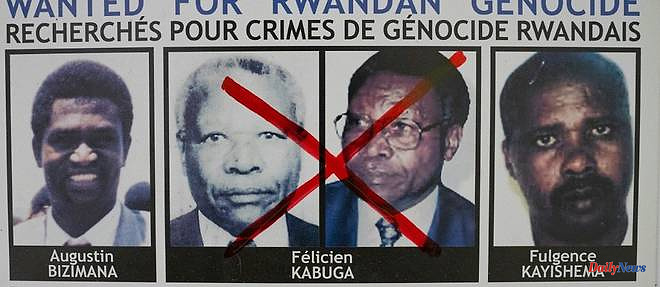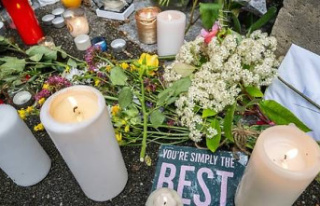One of the last four fugitives wanted for their role in the genocide of the Tutsi in Rwanda in 1994, Fulgence Kayishema, was arrested on Wednesday in South Africa and will face trial, announced Thursday the UN prosecutors.
Fulgence Kayishema is notably accused of having murdered, with other individuals, more than 2,000 men, women, elderly people and refugee children in the Nyange church around or on April 15, 1994.
He "was arrested yesterday afternoon" (Wednesday), said the prosecutors of the International Mechanism responsible for completing the work of the International Criminal Tribunal for Rwanda (ICTR).
Wanted for his role in the 100-day genocide that killed 800,000 Tutsi and moderate Hutu, Fulgence Kayishema had been on the run since 2001, they said in a statement.
A former police inspector born in 1961 according to the court, he was charged with genocide, complicity in genocide, conspiracy to commit genocide and crimes against humanity.
"Mr. Kayishema's arrest sends a powerful message that those suspected of committing such crimes cannot escape justice and will ultimately be held accountable, even more than a quarter of a century later." , said the spokesman for the UN secretary, Stéphane Dujarric, in a press release.
The suspect, apprehended at a wine farm in Paarl, about 60 kilometers from Cape Town, was living under the false name of Donatien Nibashumba, South African police said.
The accused "directly participated in the planning and execution" of the "massacre" of the church of Nyange, in the commune of Kivumu, "in particular by procuring and distributing gasoline to burn the church with the refugees inside," according to prosecutors.
"When that failed, Mr. Kayishema and others used a bulldozer to collapse the church, burying and killing the refugees inside," they said.
In the days that followed, the accused and others allegedly oversaw the transfer of bodies from the church to mass graves.
"Genocide survivors have tried hard to show his crimes and call for his arrest," Naphtali Ahishakiye, executive secretary of the umbrella association of survivors Ibuka, told AFP.
The arrest of Mr. Kayishema "guarantees that he will be brought to justice for the crimes of which he is accused", welcomed the prosecutor Serge Brammertz, quoted in a press release. "Genocide is the most serious crime known to humanity," he added.
Mr Kayishema used numerous aliases and false documents and relied on "a network of trusted supporters" to conceal his identity and whereabouts, prosecutors say.
This network was made up in particular of parents, members of the former Rwandan Armed Forces and the Democratic Forces for the Liberation of Rwanda, "as well as supporters of the genocidal ideology of Hutu Power", they indicated.
Mr. Brammertz praised the cooperation of the South African authorities and indicated that he had also received “vital” support from the Rwandan authorities and other countries in southern Africa, in Eswatini (formerly Swaziland) and in Mozambique.
Many Rwandans have been sentenced by the justice of their country, international justice or that of Western countries for acts related to the 1994 genocide.
The ICTR sentenced 62 people, including 30 years in prison for former Rwandan minister Augustin Ngirabatware.
Prosecutors said they had found five fugitives since 2020.
Among these are Augustin Bizimana, one of the main architects of the massacre, and Protais Mpiranya and Phéneas Munyarugarama, who died without facing international justice.
The trial of Félicien Kabuga, an alleged financier of the genocide, opened in September 2022, but was suspended in March while it was decided whether he was healthy enough to remain in the dock.
Kayishema will appear in Cape Town Magistrates Court on Friday pending extradition to Rwanda, South African law enforcement officials said.
"We hope that his trial will be expedited and that the machinery of justice will not experience the kinds of delays that the Kabuga trial experienced," Ahishakiye said.
Only three fugitives remain under the Mechanism's jurisdiction today, according to the court.
scholarship-jcp/cvo/sst
25/05/2023 21:01:44 - The Hague (AFP) - © 2023 AFP












